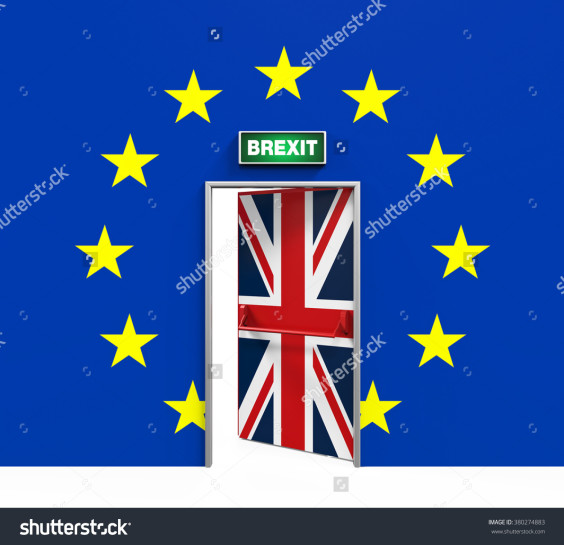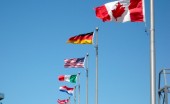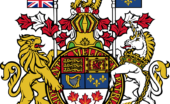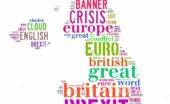So many memories, particularly of the years as neighbours on Rosemount Avenue, with shared activities, adventures and lively political discussions.…
After the 2016 Brexit vote
Written by Diana Thebaud Nicholson // November 3, 2016 // Britain/U.K., Europe & EU // Comments Off on After the 2016 Brexit vote
3 November
Brexit’s Back: Britain’s departure from the European Union is a done deal, but British lawmakers may still have to vote on it. The United Kingdom’s High Court has ruled that Prime Minister Theresa May’s government doesn’t have the authority to initiate a split—based on the results of the June 23 referendum—without Parliament’s approval. The government is now appealing the decision in the U.K. Supreme Court. May expected to begin the two-year process of leaving the EU in March; this legal challenge, which was partially crowdfunded and led by an investment-fund manager, throws the nation’s future into even more uncertainty.
Brexit court case: Government loses, May cannot trigger Article 50
(Sky News) Campaigners win a landmark High Court victory over Theresa May on whether she has the right to fire the Brexit start gun.
Theresa May cannot trigger Brexit without putting it to an MPs’ vote in the House of Commons, the High Court has ruled.
In a landmark ruling, Lord Chief Justice Thomas said Mrs May did not have the right to set in motion Article 50, the official start of the two-year European Union divorce proceedings, without consulting Parliament.
The decision is a significant setback for the Prime Minister’s Brexit strategy – she revealed at the Conservative Party Conference last month she would trigger Article 50 by the end of March.
2 November
WTO rules mean UK-EU divorce and new trade arrangement are not fully separable
(Open Europe) Whether a transitional arrangement is a possible way of bridging the gap between the UK’s formal exit from the EU and the entry into force of a new, comprehensive trade deal with the EU-27 is increasingly discussed as a potential option for the upcoming Brexit negotiations.
The UK Government would certainly like to pursue parallel negotiations, but some EU member states (Italy, for instance) are sceptical, and the European Commission has previously sounded absolutely convinced that the two negotiations should be kept separate – see what EU Trade Commissioner Cecilia Malmström told the BBC at the end of June. … As a result, transitional arrangements of some kind are being increasingly cited as one option to bridge the UK’s formal exit from the EU with the moment new trade arrangements between the UK and the EU-27 enter into force.
1 November
Labour backs ‘Brexit planner’ Mark Carney over Bank of England decision
Shadow City minister Jonathan Reynolds tells IBTimes UK the move is good for Britain.
Mark Carney’s decision to stay an extra year as the governor of the Bank of England is good news for the UK, according to Labour.
“The prime minister clearly recognises the Bank had a plan for the aftermath of the Brexit vote when the government didn’t,” Jonathan Reynolds MP told IBTimes UK last night (31 October).
Liam Fox’s attempt to secure pre-Brexit deal with EU suffers setback
Danuta Hübner, a former Polish minister who became the country’s first European commissioner, said it would not be possible for the UK to conclude a trade deal while still an EU member.
Now an MEP, she chairs the European parliament’s constitutional affairs committee, which will be responsible for vetting any post-Brexit free-trade agreement with the UK.
In an interview with the Guardian, she stressed negotiations on Britain’s EU exit under article 50, due to begin next year, would be on a different track to talks on the future relationship.
“Formally you cannot conclude or even negotiate the agreement that belongs to a third-country situation while you are still a member. Article 50 is only about withdrawal and only when you are out can you negotiate another agreement.”
Mark Carney: Bank on him returning?
(Maclean’s) Amid rumours that Mark Carney would bail early as Bank of England governor, the Canadian boy wonder of central banking confirmed he’ll stay on until mid-2019. Great Britain needs continuity and his steady hand on the levers as one of the world’s largest economies breaks off from the rest of the European Union. He’s staying on one year longer than the five he initially promised, but shy of a governor’s full eight-year term. The timing means he could return home for the 2019 Canadian election. Our country could do worse than to have him back and contributing to public service later this decade.
22 October
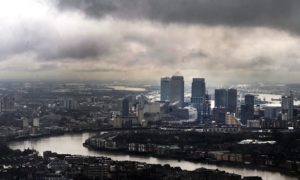 Brexit: leading banks set to pull out of UK early next year
Brexit: leading banks set to pull out of UK early next year
Anthony Browne, head of the British Bankers’ Association, warns that major lenders are poised to hit relocate button
(The Guardian) Britain’s biggest banks are preparing to relocate out of the UK in the first few months of 2017 amid growing fears over the impending Brexit negotiations, while smaller banks are making plans to get out before Christmas.
The dramatic claim is made in the Observer by the chief executive of the British Bankers’ Association, Anthony Browne, who warns “the public and political debate at the moment is taking us in the wrong direction”.
A source close to the Brexit secretary, David Davis, said he and the chancellor, Philip Hammond, had last week sought to offer reassurance that they were determined to secure the status of the City of London.
20 October
The Economist‘s chief economist writes:
In the aftermath of the Brexit vote, we were the most pessimistic of the major forecasters. Despite this, things have been going slightly worse than we thought, with the UK prime minister, Theresa May, indicating that she will accept more economic pain to prevent free movement of workers than we had expected. We have stuck with our call that the UK will enter recession next year as both private consumption and investment fall. The squeezing of industrial profits and lower real incomes are two of the channels through which we expect this to happen.
15 October
Clive Irving: The Rise of Hateful Little England
After the Brexit, hate crimes have exploded and Britain’s new government fuels an economic disaster by purging universities and businesses of foreigners.
(The Daily Beast) This city feels like the capital of a country that has been hijacked by a tribe for whom London represents everything that they hate: they hate its prosperity, its cosmopolitanism, its social diversity, its cultural exoticism, its bawdiness and most of all its un-Englishness.
The hijackers are the Little Englanders, a noisome and virulent strain of nativism that has taken power in Westminster. For several generations they had been successfully marginalized. Now they are mainstream, put there by the vote to leave the European Union, Brexit. They dominate the ruling Conservative party and came to power, narrowly, as unexpected winners, gloating.
The Brexiters are fundamentally delusional. The delusion is a form of patriotism based not on the traditional flag-waving of great power conquests, but on a pureness of nationhood that in order to be preserved must withdraw from all external influences and engagements. …
The appearance of discrimination on the basis of nationality—with all its echoes of Nazi Germany in the 1930s—was reinforced when Amber Rudd, who took over the Home Office (a combination of the equivalents of the Department of the Interior and Homeland Security) from Theresa May, said that more positions in British universities and businesses should be reserved for those of British birth. (About 15 percent of the research and teaching staff at British universities are from Europe.) …
Rudd even said that companies should have to hand over lists of their foreign workers to the government. There are 3 million citizens of European Union countries working in Britain who now feel under threat of deportation once the process of Brexit is complete.
It got worse. The next target was the institution that the country values above all others, the National Health Service. Ministers suggested that Britain should produce more home-grown nurses, doctors and specialists to replace those recruited from abroad.
14 October
Flight of the Brexit Bankers
Where in Europe will they go? If London loses its luster, Dublin and Frankfurt look like winners, but places like Warsaw—yes, Warsaw—stand to gain, too.
(Bloomberg) Has Britain endured all the pain it’s likely to feel over its vote to leave the European Union? Probably not. The repercussions will echo through the City of London’s glass canyons and walnut-paneled boardrooms for years. London, a trading center since Roman times that’s become the world capital of foreign exchange trading and the No. 1 international banking center, has a lot to lose. Consulting, financial, insurance, legal, and related services account for 12 percent of the U.K.’s gross domestic product. They pay more in taxes than any other sector and support an estimated 2.2 million British jobs.
Frankfurt’s key attraction is simple: It’s an established financial capital at the heart of Europe’s biggest economy. It’s home to the ECB and a clutch of agencies regulating insurance and German banking. It hopes to become the new headquarters of the European Banking Authority, the EU regulator now based in London. And Frankfurt’s Deutsche Börse, Europe’s biggest exchange operator, is in the process of buying London Stock Exchange Group.
13 October
(Quartz round-up) Britain’s High Court mulls the government’s right to trigger Brexit. The court will decide whether ministers can use the Royal Prerogative—the powers of the king going back to medieval times—to invoke Article 50 of the Lisbon Treaty to formally begin exit talks, without first getting parliamentary approval.
11 October
Brexit makes China keener to strike a trade deal with Britain, says ambassador
(Telegraph UK) China wants to do more business with post-Brexit Britain, the country’s ambassador to the UK said, as he praised the City of London and Britain’s financial prowess.
Britain is keen to strike more deals with China, so the warm words from Liu Xiaoming will encourage the Government in its plans to increase non-EU trade.
The ambassador also hinted that China will tie its plans for Britain to the success of the Hinkley Point nuclear plant, however, indicating that it expects good treatment in major projects, following the delays to the plant’s approval over the summer.
7 October
(Quartz round-up) Britain’s government took a sharply xenophobic turn this week. Prime minister Theresa May poured scorn on “citizens of the world,” while her home secretary, Amber Rudd, warned that companies might be forced to publish how many foreigners they employ, causing dismay both in Britain and outside it (paywall).But just as notable as the Tories’ newfound nativism is their newfound interventionism. May called for creating “a new centre ground in which government steps up,” possibly pressuring companies to not only employ fewer foreigners but also pay more taxes and treat both workers and customers better. It’s a near-reversal of the party’s pro-market shift under Margaret Thatcher. And it’s a far cry from the US, where Donald Trump and his allies have hijacked the Republicans’ big-business conservatism with a brand that, while even more xenophobic than Britain’s, is virulently anti-government.
LSE foreign academics told they will not be asked to advise UK on Brexit
Experts question legality under anti-discrimination laws as senior politicians criticise move as ‘baffling’
(The Guardian) Sara Hagemann, an assistant professor at the London School of Economics who specialises in EU policymaking processes, EU treaty matters, the role of national parliaments and the consequences of EU enlargements, said she had been told her services would not be required.
It is understood up to nine LSE academics specialising in EU affairs have been briefing the Foreign Office on Brexit issues, but the school was informed by a senior FCO official that submissions from non-UK citizens would no longer be accepted. The staff group concerned were then made aware of the instruction.
European academics, who make up about 15% of research and teaching staff at British universities, responded with dismay. Jan Eichhorn, a fellow in social policy at Edinburgh university, tweeted: “For the first time this makes me question whether it makes sense to continue working at a UK university as an EU policy-focussed academic.”
The government has come under sustained fire over immigration since the Conservative conference when the home secretary, Amber Rudd, said it was considering requiring companies to declare the proportion of international staff in their workforce.
16 September
As Britain Confronts ‘Brexit,’ a Canadian Takes Center Stage: Mark Carney
On a soggy morning in late June, as Britain absorbed the staggering news that it had voted to abandon the European Union, a stone-faced Canadian took to national television to offer assurances that the world was not ending.
Mark Carney, the first foreigner to head Britain’s central bank in its 322 years of existence, was suddenly a crucial figure in the improvised effort to manage the fallout of the so-called Brexit vote.
No one knew what the referendum meant, but markets worldwide were plummeting in fear and confusion. Much of the British government was in tatters. The central bank was wielding 250 billion pounds, or about $345 billion, to throw at the financial system. “We are well prepared for this,” Mr. Carney said that morning.
Even those who lavish praise on his leadership suggest the bank may be out of ammunition. Whatever happens from here — whether Britain slides into recession or escapes that fate — may depend more on whether the Treasury unleashes government spending than on anything Mr. Carney may be considering.
12 August
Henry Porter: The Brexit Hangover Just Got Worse
Those who supported a departure from Europe are only now coming to terms with the crippling economic realities—including the fact that many didn’t quite understand the rules and the whims of their neighbors.
(Vanity Fair) Right now, I can report no advance in the understanding of what Brexit actually means, or what the three ministers charged with overseeing the surgery—David Davis, Dr. Liam Fox, and the buffoonish Boris Johnson—are planning. What is becoming clear, however, is that the U.K. is much more entangled with the European Union than the Brexit campaigners ever admitted, or even understood, at the time of the referendum. And as with any amputation there is never a plus, only one very large minus.
There is nothing to give us confidence that anyone in the U.K. government fully comprehends the reality of the situation. After all, the government minister in charge of Brexit, the aforementioned David Davis, only realized in the last few months that it would not be possible for the U.K. to forge individual trade deals with different E.U. member states.
10 August
The impact of Brexit without a trade deal? Not good. The Institute for Fiscal Studies said if the UK was unable to negotiate new trade agreements with the EU before leaving the bloc, its economic output could drop by 4%. The report highlighted financial services, in particular, as particularly vulnerable.
Theresa May confirms to Danish and Dutch counterparts that UK won’t trigger Article 50 until next year
(Open Europe) PA reports that UK Prime Minister Theresa May has confirmed to her Danish and Dutch counterparts that the UK will not invoke Article 50 of the EU Treaties – the formal process for leaving the EU – until 2017 to allow all member states to prepare for the negotiations.
6 August
(Project Syndicate Opinion) Consider Britain and Europe in the aftermath of the fear-induced Brexit vote – the populists’ lone triumph so far. Although the immediate impact has been less severe than anticipated, NYU’s Nouriel Roubini sees “plenty of reason to worry about Europe and the eurozone.” Perhaps most important, an “ugly divorce” could roil markets and “lead Scotland and Northern Ireland to leave the UK,” fueling secession movements elsewhere. And the other non-eurozone EU members, Denmark and Sweden, could “fear that they will become second-class members of the EU, thus leading them to consider leaving as well.”
Britain’s choice about what sort of Brexit to pursue will also have a profound impact. “A ‘hard’ Brexit,” says Princeton’s Harold James, “would entail the severing of all existing links between the UK and the EU: no more contributions to the common budget and an end to free labor mobility.” By contrast, “a ‘soft’ Brexit would reflect the view that the UK is still a part of Europe, and that Britain still has much to gain from close EU ties.” The latter course, in James’s view, “is the UK’s better option,” reflecting “the triumph of a realistic worldview over a self-defeating perspective underpinned by an implausible notion of sovereignty.”
The presence of leading Brexiteers in Prime Minister Theresa May’s new cabinet would seem to make the “better option” unlikely. But Anatole Kaletsky of Gavekal Dragonomics goes even further. Instead “of rushing Brexit,” he argues, “Europe’s leaders should be trying to avert it, by persuading British voters to change their minds.”
With opinion polls showing overwhelming public support for a “soft” approach, and with the new government holding only a “slender parliamentary majority” that “depends on disgruntled ‘Remain’ rivals,” Kaletsky thinks “the EU could advance this strategy by calling May’s bluff on ‘Brexit means Brexit.’” That means “telling her that only two outcomes are possible: either Britain loses all single-market access and interacts with Europe solely under World Trade Organization rules, or it remains an EU member, after negotiating reforms that could persuade voters to reconsider Brexit in a general election or a second referendum.”
5 July
David Kilgour: Britain Needs to Exit Brexit
(Epoch Times) As a visitor last week to the European Parliament in turmoil following the United Kingdom referendum, I found it difficult to find anyone who does not hope the British will overturn the “Brexit” outcome of June 23 with a new referendum to be held as quickly as possible.
A more responsible prime minister than David Cameron, who spent half a decade attacking much about the EU before calling a referendum without vote threshold conditions, taking over in the fall—most probably the pro-EU Home Secretary Theresa May—could readily provide a democratically legitimate way to overturn what was clearly an advisory rather than a binding referendum.
Property funds halt trading as Brexit fallout deepens
Surge in requests to redeem investments prompts freeze on funds as sterling tumbles to 31-year low and Bank of England says risks have crystallised
The Bank of England said in its half-yearly assessment of risks to the financial system published on Tuesday said that some of the risks to the financial system it had warned about in the run-up to the referendum had “begun to crystallise”, including the possible downturn in the commercial real estate market.
4 July
A Brexit post-mortem: 17 takeaways for a fallen David Cameron
In an open memo to the outgoing British Prime Minister, former Canadian High Commissioner to the UK, Jeremy Kinsman, describes in detail just how badly the Remain campaign failed.
(Open Canada) Allow me to observe that partisan politics is all you have ever done. It’s a handicap. Professional politicians over-react to tribal voices and noises from their camp. In your case, it’s against the continuous drumbeat of jingoistic anti-EU right-wing journalism (oddly promoted for years by non-EU status-seeking owners of the Times and the Express), two of whose exponents led the Leave campaign.
Farage Resigns as UKIP Leader After ‘Winning Country Back’
(Bloomberg) The referendum result marked a personal success for Farage, who in the early 1990s helped to found a party later described by Cameron as “a bunch of fruitcakes, loonies, and closet racists.” That represented a misjudgment as the prime minister found himself having to turn more euroskeptic to maintain his party’s appeal to voters, ultimately calling the referendum on EU membership which sank him
28 June
 Gwynne Dyer: Voters’ Remorse, or The Morning After the Night Before
Gwynne Dyer: Voters’ Remorse, or The Morning After the Night Before
British politics is a train-wreck, unable and unwilling to respond to EU demands for rapid action, but the EU cannot afford to wait five or six months for the exit negotiations to begin. The markets need certainty about the future if they are not to go into meltdown, and one way or another the EU’s leaders will try to provide it. It is going to be a very ugly divorce.
27 June
Economic Fears Rising, Britain Hopes to Stay in E.U. Market
Leaders of the Leave campaign, including Boris Johnson, the former London mayor who is now a leading candidate to succeed Mr. Cameron, notably modulated their tone and some of their positions on Europe, leaving unclear exactly what issues they want to address through a withdrawal.
The state of chaotic paralysis highlighted two fundamental problems that have plagued the European Union for the last decade. One is its difficulty balancing democratic accountability against its institutional drive to further the cause of unity. The other is its inability to act quickly and decisively to address the crises that regularly undercut confidence among voters and in the markets.
Monday’s events spoke to the struggle on all sides to define a way forward and restore some sense of unity, both within Britain and throughout Europe.
In the first meeting of Parliament since the referendum, Mr. Cameron said he considered the vote binding, though he reiterated that he would leave to his successor the decision to trigger the formal withdrawal process. “The decision must be accepted and the process of implementing the decision in the best possible way must now begin,” he said.
About three-quarters of lawmakers had supported remaining in the European Union. A senior Conservative lawmaker, Kenneth Clarke, suggested that Parliament could override the referendum — which is not, in the end, legally binding on the government — while a Labour legislator, David Lammy, called for a second referendum
Desperately seeking alternatives to Brexit financial mess: Don Pittis
(CBC) Suddenly even people who voted to leave are looking for a way out of the Brexit morass
As if the first one didn’t get them into enough trouble, Britons are calling for a second referendum. A third if you count another Scotland vote to leave an increasingly dis-United Kingdom.
People who voted to leave are saying they didn’t realize the implications, as the nations governed by the mother of parliaments in London begin to tear apart and the country’s dominance as Europe’s financial centre is threatened.
But after a weekend of political chaos, help may be on the way, as those who dislike the result begin to propose political moves to circumvent the referendum. …
Many people, including the founders of the U.S. constitution, feared that voting each issue by popular consent, sometimes called government by referendum, would create confused and irreconcilable outcomes, says Harvard scholar Jennifer L. Hochschild.
Many politicians and scholars have long maintained that unschooled voters can be manipulated into making decisions that are against their or their country’s national interests. They are just not properly informed.
Anger over ‘Bregret’ as Leave voters say they thought UK would stay in EU
Some said they had not forseen the immediate economic impact, while others were angry at Nigel Farage’s admission that NHS funding claim was a ‘mistake’
26 June
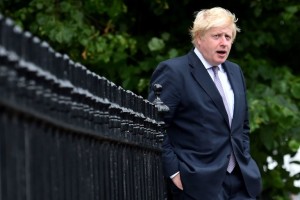 A Brexit conspiracy theory nails the no-win situation Boris Johnson now finds himself in
A Brexit conspiracy theory nails the no-win situation Boris Johnson now finds himself in
The Brexit leaders now have a result that they cannot use. For them, leadership of the Tory party has become a poison chalice.
(Quartz) a post in the Guardian’s comments section lays out a scenario in which Johnson’s predicament looks far worse.
“He has been out-maneouvered and check-mated,” the comment, by a prolific and anti-Brexit commenter identified as Teebs, says. “If he runs for leadership of the party, and then fails to follow through on triggering Article 50, then he is finished. If he does not run and effectively abandons the field, then he is finished. If he runs, wins and pulls the UK out of the EU, then it will all be over – Scotland will break away, there will be upheaval in Ireland, a recession … broken trade agreements. Then he is also finished. Boris Johnson knows all of this.”
The commenter even goes so far as to say the Brexit campaigners themselves have no intention of carrying out the Article 50 process: “All that remains is for someone to have the guts to stand up and say that Brexit is unachievable in reality without an enormous amount of pain and destruction, that cannot be borne. And David Cameron has put the onus of making that statement on the heads of the people who led the Brexit campaign”
The theory seems to have convinced many with its interpretation of the two men’s demeanors and its theories about each’s endgame, and it is being shared widely online
Second EU referendum petition investigated for fraud
(BBC) A number of people on Twitter have pointed out that some people appear to have signed the petition from outside the UK.
Only British citizens or UK residents are permitted to sign the petition, including Britons based abroad.
The House of Commons petitions committee said it will continue to monitor the petition for “suspicious activity”.
Scottish leader threatens to veto Brexit
First Minister Nicola Sturgeon says her government may use legal means to block Britain’s exit from the EU
(Al Jazeera) Scottish First Minister Nicola Sturgeon has vowed to protect Scotland against the “devastating” fallout of Brexit and hinted her government may use legal means to try to block Britain’s departure from the EU.
Sturgeon said the United Kingdom that Scotland voted to remain a part of in a 2014 independence referendum “does not exist any more” after Thursday’s referendum to leave the EU.
Britain to become ‘new Norway’ after Brexit: Finland’s Stubb
(Reuters) As a member of the European Economic Area, Norway gets access to EU’s single market in exchange for contributing about 400 million euros a year to the EU budget. But it must accept EU’s rules on the single market and free movement of people without a vote.
Stubb dismissed as unrealistic the Brexit campaign promise to curb immigration into Britain.
“If Britain wants to participate in the free movement of goods, services and money, it will have to participate in the free movement of labor as well. That’s what Norway does.”
25 June
Brexit May Well Never Happen
The victors are already looking sheepish about leaving the EU. Maybe they won’t!
(Slate) Across social media were reports of “Leave” voters waking up with buyer’s remorse. Some were counting on a “Remain” victory and wanted only to “send a message” or press the EU for reforms—a bit like playing a game of chicken with 64 million people’s hands on the steering wheel.
The United Kingdom’s withdrawal from the EU can’t happen until the country sends the EU an “Article 50 notification,” a formal announcement that it intends to withdraw. That notification starts a two-year countdown during which Britain and Europe negotiate the terms of their separation. At the end of two years, regardless of the state of those negotiations, Britain’s out.
So who sends the notification, and when? Neither the EU charter nor the Brexit referendum specifies. (The vote was nonbinding, although both sides assured voters their decision would be implemented.) Prime Minister David Cameron could plausibly have done it on Friday, but he didn’t. Such a step, he said, should be taken by his successor (probably Johnson). Cameron says he isn’t stepping down until October, so there are at least four months before the trigger is pulled. (EU officials and member governments are pressing the Brits to move quickly, but there’s not much they can do about it, and German Chancellor Angela Merkel says she’s comfortable with a more leisurely withdrawal.)
Jeffrey Sachs: The Meaning of Brexit
The Brexit vote was a triple protest: against surging immigration, City of London bankers, and European Union institutions, in that order. It will have major consequences. Donald Trump’s campaign for the US presidency will receive a huge boost, as will other anti-immigrant populist politicians. Moreover, leaving the EU will wound the British economy, and could well push Scotland to leave the United Kingdom – to say nothing of Brexit’s ramifications for the future of European integration. Brexit is thus a watershed event that signals the need for a new kind of globalization, one that could be far superior to the status quo that was rejected at the British polls.
Nick Cohen: There are liars and then there’s Boris Johnson and Michael Gove
The Brexit figureheads had no plan besides exploiting populist fears and dismissing experts who rubbished their thinking
(The Guardian) The Vote Leave campaign followed the tactics of the sleazy columnist to the letter. First, it came out with the big, bold solution: leave. Then it dismissed all who raised well-founded worries with “the country is sick of experts”. Then, like Johnson the journalist, it lied.
… not since Suez has the nation’s fate been decided by politicians who knowingly made a straight, shameless, incontrovertible lie the first plank of their campaign. Vote Leave assured the electorate it would reclaim a supposed £350m Brussels takes from us each week. They knew it was a lie. Between them, they promised to spend £111bn on the NHS, cuts to VAT and council tax, higher pensions, a better transport system and replacements for the EU subsidies to the arts, science, farmers and deprived regions. When boring experts said that, far from being rich, we would face a £40bn hole in our public finances, Vote Leave knew how to fight back. In Johnsonian fashion, it said that the truth tellers were corrupt liars in Brussels’ pocket.
The real division in Britain is not between London and the north, Scotland and Wales or the old and young, but between Johnson, Gove and Farage and the voters they defrauded. What tale will serve them now? On Thursday, they won by promising cuts in immigration. On Friday, Johnson and the Eurosceptic ideologue Dan Hannan said that in all probability the number of foreigners coming here won’t fall. On Thursday, they promised the economy would boom. By Friday, the pound was at a 30-year low and Daily Mail readers holidaying abroad were learning not to believe what they read in the papers. On Thursday, they promised £350m extra a week for the NHS. On Friday, it turns out there are “no guarantees”.
Petition to hold second EU referendum reaches 2.5m signatures
House of Commons website sees unprecedented traffic for record-breaking petition
Demand for a fresh vote was so high that it crashed the parliament.uk website on Friday as the petition was shared widely on social media and new signatures were added at a rate of more than 100,000 an hour.By Saturday night, more than 150,000 people had signed another petition calling on the London mayor to declare the capital independent from the UK so that it could stay in the EU, with supporters tweeting under the hashtag #londependence
24 June
Chris Patten: A British Tragedy in One Act
(Project Syndicate) The decision to leave the EU will dominate British national life for the next decade, if not longer. One can argue about the precise scale of the economic shock – short- and long-term – but it is difficult to imagine any circumstances in which the United Kingdom does not become poorer and less significant in the world. Many of those who were encouraged to vote allegedly for their “independence” will find that, far from gaining freedom, they have lost their job.
… now that David Cameron has made clear that he will resign, the Conservative Party’s right wing and some of its sourer members will dominate the new government. Cameron had no choice. He could not possibly have gone to Brussels on behalf of his backstabbing colleagues to negotiate something he didn’t support. If his successor is a Brexit leader, Britain can look forward to being led by someone who has spent the last ten weeks spreading lies.
The British are frantically Googling what the E.U. is, hours after voting to leave it
(WaPost) The whole world is reeling after a milestone referendum in Britain to leave the European Union. And although leaders of the campaign to exit Europe are crowing over their victory, it seems many Britons may not even know what they had actually voted for.
Awakening to a stock market plunge and a precipitous decline in the value of the pound that Britain hasn’t seen in more than 30 years, voters now face a series of economic shocks that analysts say will only worsen before they improve. The consequences of the leave vote will be felt worldwide, even here in the United States, and some British voters say they now regret casting a ballot in favor of Brexit.
That confusion over what Brexit might mean for the country’s economy appears to have been reflected across the United Kingdom on Thursday. Google reported sharp upticks in searches not only related to the ballot measure but also about basic questions concerning the implications of the vote. At about 1 a.m. Eastern time, about eight hours after the polls closed, Google reported that searches for “what happens if we leave the EU” had more than tripled.
‘Brexit’ Aftershocks: More Rifts in Europe, and in Britain, Too
(NYT) Britain’s startling decision to pull out of the European Union set off a cascade of aftershocks on Friday, costing Prime Minister David Cameron his job, plunging the financial markets into turmoil and leaving the country’s future in doubt.
The decisive win by the “Leave” campaign exposed deep divides: young versus old, urban versus rural, Scotland versus England. The recriminations flew fast, not least at Mr. Cameron, who had made the decision to call the referendum on membership in the bloc to manage a rebellion in his own Conservative Party, only to have it destroy his government and tarnish his legacy.
The result of the so-called Brexit vote presented another stiff challenge to the leaders of the other leading European powers as they confront spreading populist anger. It was seized on by far-right and anti-Brussels parties across Europe, with Marine Le Pen of the National Front in France calling for a “Frexit” referendum and Geert Wilders of the Party for Freedom in the Netherlands calling for a “Nexit.”
